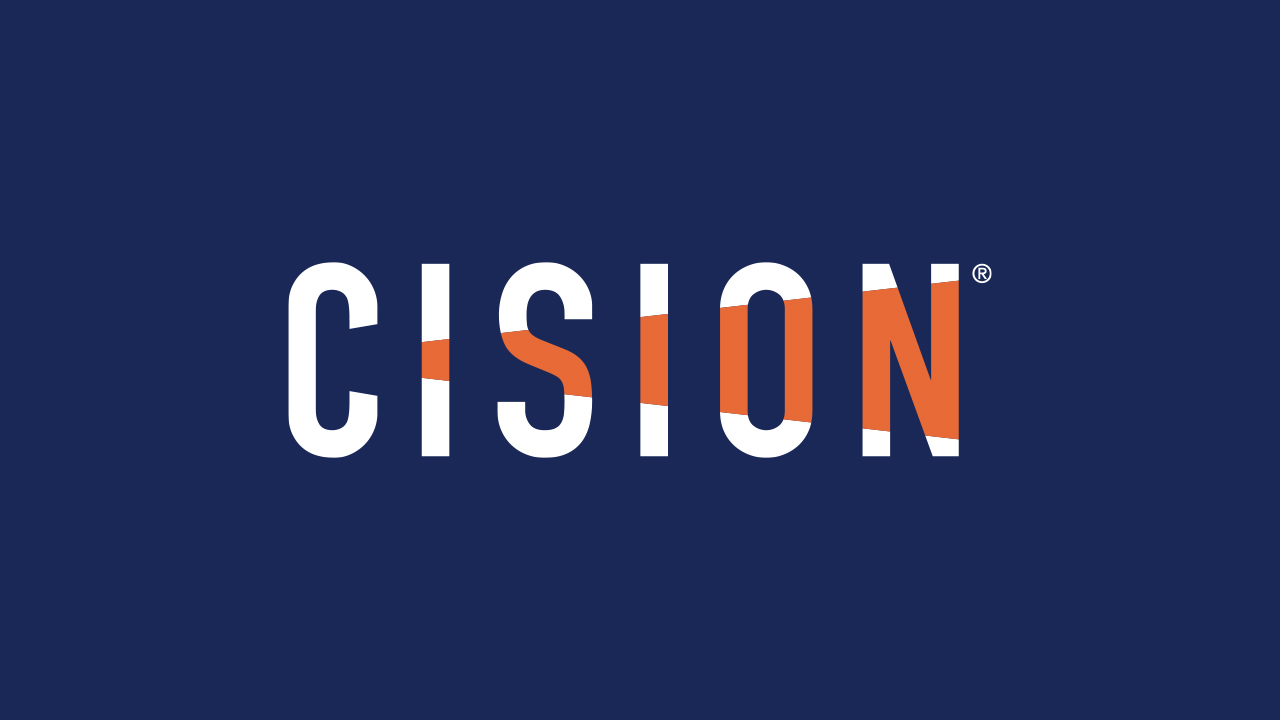Once considered a "nice to have" for PR, marketing, corporate comms teams, a social media strategy is now a critical, "must-have" component for brands. It is also one of the most challenging aspects of the role of communicators, given the ever-changing landscape of social media. The recent Global Comms Report identified as many as 11 social media platforms that present opportunities for PR and comms teams to grow their brand presence and engage with target audiences.
With the array of platforms out there and the need for consistent engagement and monitoring, most brands would require a whole team dedicated to managing their online presence - but few brands have the time or resources to do that.
So what's the solution?
Enter social media management tools. These tools help PR teams streamline the social media monitoring and engagement process, allowing for better planning, posting, monitoring, and analyzing social media content across various channels. Such tasks are essential for staying ahead in today's competitive landscape.
But not all social media management tools are created equal. Though there are a variety of high quality tools out there, they vary in capabilities, features, and other elements that meet different needs for different types of PR and comms teams. Whether you need help scheduling and automating posts, streamlining efforts, tracking conversations and gleaning insights, or engaging with and growing audiences, (or all of the above), there's a tool designed to help.
The best management tools offer a range of features that fit within most PR and comms teams' strategies while also being user-friendly and cost-effective.
Investing in the right management software can ultimately save time and resources, freeing your team up to focus more on creating impactful content and strategies. The key is to find the right balance between features and usability to ensure team has everything they need for social media management success.
Choosing the Right Tools
When assessing social media management tools, the first important step is identifying your team's specific needs, so you know what you're looking for in a platform.
Use the following guide to help you understand what to look for in a good social media management tool, including essential features. We'll also look at the spectrum of free versus paid options.
Evaluating Your Social Media Needs
Identifying key needs is critical in selecting the right tool. For small businesses or solopreneurs, for example, the focus might be on ease of use and cost-effectiveness. Meanwhile, enterprise-sized organizations and PR agencies might want to prioritize advanced features like deep analytics, team collaboration, and extensive integrations. Customer service and support should always be a consideration as well, ensuring your team has the knowledge and resources to make the most of the platform.
Whether aiming to enhance your social media presence, manage audience engagement, or amplify marketing campaigns, pinpointing these needs will guide you toward the most suitable tool.
Size of Business: Solopreneurs, small businesses, or enterprise? How extensive are your social media management needs?
Social Media Tasks: What tasks will you be doing on a daily basis? Posting, scheduling, analytics, customer relationship management (CRM)?
Level of Integration: How many social platforms do you use? Do you plan to increase your presence on more platforms in the future?
Collaboration Needs: Who will be using the tool? Are team members involved in social media management?
Features to Look for in Management Tools
The right features are critical to effective social media management efforts. We recommend a tool that offers comprehensive scheduling capabilities that enable you to streamline your team's efforts and ensure consistent posting. Analytics - data around who is engaging with your posts and in what manner - provide critical insight that will help you improve your social media strategy. Social listening is also a key feature to look for, as it enables teams to actively monitor who's talking about your brand on social media and what they're saying. Moreover, CRM integration supports maintaining relationships with our audience.
Scheduling: Automated social media scheduler for consistency.
Analytics: Data on performance to help tailor our marketing efforts.
Social Listening: Keep up with what's being said about your brand.
CRM Integration: Manage audience relationships directly within the tool.
Free vs. Paid Options
PR and comms teams are often given the directive to "do more with less" so budget is probably one of the biggest factors to consider when assessing different social media management tools.
Free plans may be enough for beginners or those with minimal needs, while paid options cater to brands invested in growth, and with more complex demands. Either way, free trials or expert-led demos are golden opportunities to test the waters before committing to anything financially.
Top 13 Social Media Management Tools
For any modern PR, marketing, or communications team where social media is an essential part of their digital strategy, social media management tools are equally important to executing on that strategy. Not only do they help streamline the process of scheduling posts and engaging with audiences, they can also help you make sense of the billions of conversations happening across social media platforms at any given time. While every tool out there is a little bit different, some tools stand out among the industry's best in help shape social media strategies.
1. CisionOne
Our top choice on the list, CisionOne is a comprehensive platform that blends scheduling capabilities with powerful analytics and advanced social listening features. In short, it enables teams to easily manage the entire social media marketing lifecycle in one, intuitive platform. In addition to social media management capabilities, CisionOne offers traditional media monitoring, a comprehensive media and influencer database, and media outreach capabilities to manage and enhance journalist and influencer relationships. Not least of all, CisionOne's customer support team ensures users are properly resourced and set up for success with the platform.
Notable Features:
Media monitoring: Track brand mentions and relevant news.
Real-time insights: Get the meaning behind the metrics, as they happen.
User-friendly dashboard: Track and visualize only the metrics that matter for your brand.
Effective searches: Editing searches and saving them for future use speeds up workflows.
Customer service: An award-winning customer service team ensures support whenever needed.
2. Brandwatch
Brandwatch is a leader in the social listening space, offering insights that help businesses understand and connect with their customers swiftly. We recommend Brandwatch for larger businesses with marketing teams in need of a robust monitoring solution.
Notable Features:
Social media monitoring: Powerful listening tools enable marketers to keep their finger on the pulse of public perception and trending topics related to their brand or industry.
Publishing & engagement: Plan and execute social media content easily while engaging with audiences in real time.
Analytics: Performance metrics aid in understanding and refining social media efforts.
3. Sprout Social
Sprout Social is one of the prominent tools in the market, specializing in collaborative features that enable teams to streamline their workflows and foster team-wide communication.
Notable Features:
Collaboration tools: Approval workflows facilitate seamless team collaboration.
Mobile app: Teams can manage social channels from anywhere at any time.
Centralized management: Simplifies handling multiple social media accounts.
Data reporting: Offers insights into the impact of social media efforts.
4. Zoho Social
Zoho Social is another noteworthy platform, catering to businesses of all sizes, and offering a variety of flexible pricing plans.
Notable Features:
Scheduling: Content planning and post scheduling is easily manageable.
Reports: Performance data appears in easy-to-read reports.
User-friendly interface: Intuitive features help simplify social media management tasks.
5. HubSpot
Fans of HubSpot frequently praise its versatility and user-friendly interface. HubSpot allows users to connect up to 300 accounts and schedule up to 10,000 posts a month. A free version of HubSpot is available for teams with minimal needs or just starting out.
Notable Features:
Scheduling: Plan posts up to three years ahead to stay on top of your content calendar.
Central platform: Centralize your strategy, track performance, and run campaigns from one place.
Account navigation: HubSpot streamlines the process of creating and publishing a social posts.
Multiple formats: The platform supports various content formats that work for various social media sites.
6. Sendible
Sendible users like it for its simple interface, its versatility, and its ability to make tasks like scheduling posts or generating reports more manageable. Sendible offers a good balance between features and affordability. One standout feature of Sendible is it's content ideas feature, where teams can get inspiration for engaging content that makes sense for their brand.
7. SocialPilot
SocialPilot caters to small businesses and agencies, providing a straightforward design that is both efficient and budget-friendly. Like many others on this list, SocialPilot makes it easy to post across various platforms, and schedule posts well ahead of time.
8. Buffer
Buffer stands out for its user-friendly interface and suite of features designed for small businesses and individual marketers with basic needs, and who value simplicity in their platform. With Buffer, you can schedule posts, analyze performance, and manage all your accounts from a single dashboard. Buffer offers a range of pricing plans including a free tier, making it accessible for users with varying budget considerations.
9. Keyhole
Keyhole is known for its real-time analytics, competitor analysis, influencer identification, and engagement tracking features. Customers love it for the way it simplifies tracking and making sense of metrics. Keyhole's versatility caters well to a variety of agencies and businesses seeking a comprehensive social media analytics and monitoring solution.
10. Sprinklr
Sprinklr is a robust platform designed for enterprise social media management. It unifies a range of features, from publishing and engagement to analytics and social listening, to streamline social media tasks within a single interface. Sprinklr is ideal for larger-scale operations and more sophisticated campaign management.
11. Meltwater
Meltwater prides itself on its ability to streamline social media processes, enabling teams to save time and focus more on creating tailored social experiences. Like the other platforms on this list, Meltwater provides a variety of features in platform, including data-driven insights and an intuitive scheduling tool for consistent engagement across all channels.
12. Hootsuite
One of the more well-known names on our list, Hootsuite is known for its user-friendly interface and its ease of use. Its wide variety of features - including post scheduling, performance analytics, and collaboration tools - make it ideal for businesses of all sizes, and its use expands beyond marketing to help with customer care as well. Customers especially appreciate it for the ability to integrate with a variety of platforms and apps to enhance functionality and streamline workflows.
13. Later
Rounding out our list is Later, which is designed for various users – businesses, influencers, and content creators – and is designed to help marketing teams schedule posts and track social metrics with ease. One standout feature in later is its Canva integration, for simple, drag-and-drop content editing. What's more, bulk preparation and captioning features make content creation less time-consuming.
Social Media Management Tools Assessment: Key Considerations
While the right social media management tool for your team will depend on your team's individual goals, budget, and needs, some features should be top of mind. We recommend prioritizing tools that offer ease of use and a quality, expert-led support team.
A user-friendly interface will streamline your workflow and ensure wide-ranging adoption across the organization, while reliable customer support will ensure you're getting the most out of your platform.
An intuitive and user-friendly interface
The dashboard of any social media management software should be intuitive, allowing teams to quickly and easily schedule posts, monitor engagement, and access analytics. Look for a tool that provides a preview feature so you can see how content will look before it goes live, and post with confidence.
Finding quality customer support
An ideal social media management platform should offer multiple support channels, including live chat, email, and a knowledge base or resource center. There should also be an onboarding process to ensure teams are equipped with the training they need to "hit the ground running."
Mobile and desktop access
With more teams working remotely, the ability to manage social media accounts on-the-go is now a non-negotiable feature. Desktop access remains key for in-depth analysis and content planning, but consider a social media management software that offers a well-designed mobile app as well.
Scalability to meet your needs
No matter how big your team or organization, your software should be able to scale with our business, so make sure the tool you're consider offers tiered features and pricing to accommodate growth.
Advanced Social Media Management Capabilities
Depending on your company's size, industry, or expectations from stakeholders or the C-suite, your social media management platform needs may require more advanced functionalities and sophisticated features, which can take your social media efforts to the next level.
Analytics and Reporting Features
Analytics and reporting are crucial for understanding social media performance. In addition to tools that provide detailed reports on the status of critical KPIs like engagement rates, click-throughs, and conversions, you might also look for custom URL tracking and hashtag analysis to better understand the impact of your content.
Automation
Automation is a game-changer in managing our social presence. It takes the tedium out of scheduling posts and managing day-to-day activities, so your team can focus on the more creative aspects of social media marketing.
Collaboration and Team Management
If you want to streamline your workflow, look for tools that offer team collaboration features. You should easily be able to create drafts, share with the team for input, and manage posting permissions - all from one space - to maintain a coherent brand voice. These features should facilitate organization and ensure that everyone involved is aligned and communicating.
Integration with Other Software and Services
Finally, consider looking for social media management platform that seamlessly integrates with other services and tools. Take inventory of your various CRMs, email marketing platforms, and other applications to see which, if any, integrate with your platform to ensure a seamless experience across various customer touchpoints and consolidate marketing efforts under one umbrella.
Final Thoughts
Social media management tools are now as business-critical as any other comms tech platform, so it's critical to invest in a tool that aligns with your unique objectives and requirements. Regardless of which tool you choose, remember the four components that should be integral to any social media management tool:
Provide an easy-to-use interface
Support for scheduling and publishing content
Offer analytics and insights
Enable social listening and engagement tracking
Advanced features like app integration and reporting when you're ready to scale
With the right tool you can streamline your workflows, drive higher engagement, and ultimately achieve your social media goals, which can impact the bottom line. Prioritize the features that support your strategy and will lead to your success. The versatility of CisionOne caters to various aspects of social media management in addition to other PR and comms priorities, securing it as our number one spot.
To learn how CisionOne's social media management tools can support your team's strategy, schedule time to speak with an expert and explore CisionOne today.








